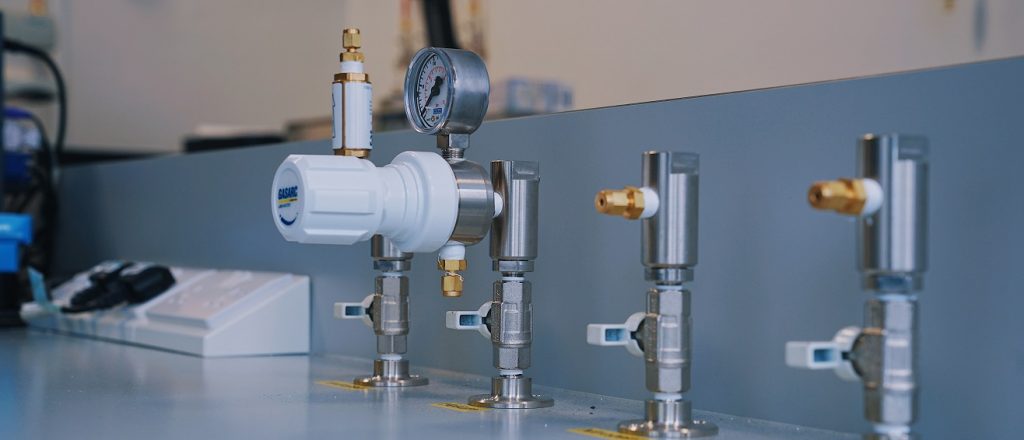MSc Chemical Engineering and Process Management

Overview
With demand for graduates across industrial sectors from energy to food and drink, pharmaceuticals, and the financial and environmental sectors, chemical engineering is a great choice. This course will prepare you for a career in which you’ll research and test new products – be they petrol, plastics, medicines, food or drink – and make them commercially viable.
On this course, you will study process management and how this relates to chemical engineering. You will gain a solid knowledge in reactor and process design, process simulation, energy integration and materials engineering, all of which which is increasingly required in chemical plants.
Why Chemical Engineering at LSBU?
- Top 10 in UK for career prospects in Chemical Engineering (Guardian 2019).
- Ranked 1st for graduate prospects in London (Sunday Times Good University Guide 2020).
- LSBU has an enviable reputation for employability and entrepreneurship. Our graduates find opportunities across the world and make an impact where-ever they go.
- Ranked joint 3rd for student voice, Engineering (National Student Survey 2019).
Modules
The modules develop key chemical engineering skills for those who are new to the subject and further enhance the understanding of chemical engineering graduates. You will learn, at an advanced level, about sustainable energy, engineering management, chemical process management, reaction engineering, and materials engineering over two semesters. Dissertation stretches from semester 1 to semester 2 and over the summer.
The course consists of modules with a total credit value of 180 credits which are made up of 6 standard modules of 20 points each and the dissertation module of 60 points.
- Multiphase fluid flow
- Chemical process management
- Advanced reaction engineering
- Energy management and sustainability
The module focuses on the emerging field of bio-refining, as compared and opposed to oil-refining. You learn about bio-fuels, biochemical production as well as important biomass feedstock, conversion technologies, final products, environmental impact using LCA and sustainability analysis. - Advanced materials engineering
- Engineering management
- Dissertation.
Entry requirements
The MSc course offers a specialisation route for chemical engineering graduates, or a conversion route for non-chemical engineering graduates.
The standard requirement for admission will be a 2.2 or higher first degree in engineering or a physical science from a UK university, or equivalent degree from overseas. Entrants from a science route must, by their degree or otherwise, be sufficiently prepared for the mathematical content of the course. Applicants must also meet the University’s standard requirement for English, i.e. IELTS 6.5, TOEFL 580 or equivalent.
Academic Technology Approval Scheme
If you are a non-EU/EEA national, you may need to apply to the Foreign and Commonwealth Office (FCO) for clearance from the Academic Technology Approval Scheme (ATAS) in order to study this course. ATAS certificate is a requirement for enrolment at the University, you will need one if you are an international student applying to study for a postgraduate qualification in the UK and it is now a requirement for every Visa application. Please note, an ATAS certificate is not needed for you to submit an application for a course at LSBU and to receive an offer.
You can find more information about whether you will require this via the FCO website and in our MyLSBU guide to the Academic Technology Approval Scheme.
The process for obtaining an ATAS certificate can take some time so it is important that you check whether you need one as early as possible so that you can make your application for the certificate to obtain it in good time. Failure to produce a valid ATAS certificate could result in delays to receiving your CAS or we may be unable to enrol you at the University.
The CAH code for this course is CAH10-01-09.

